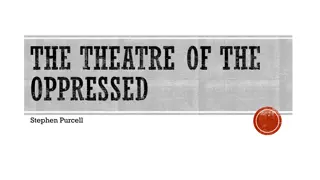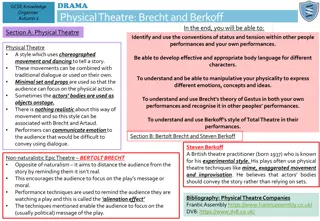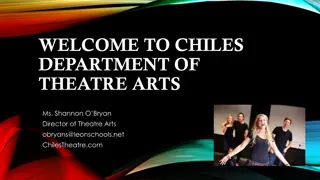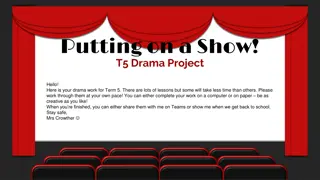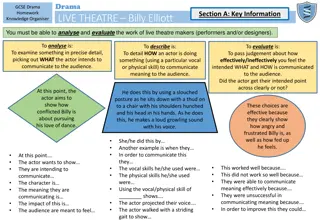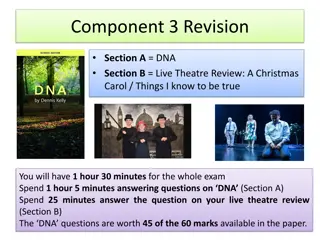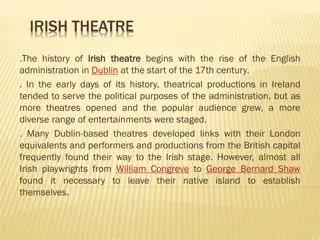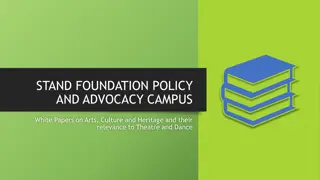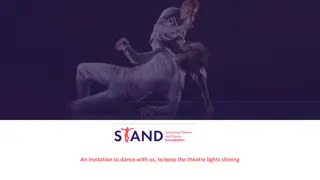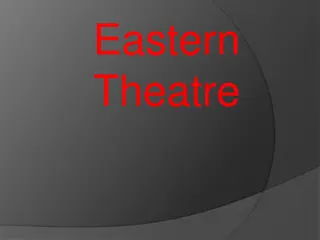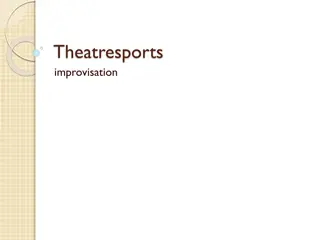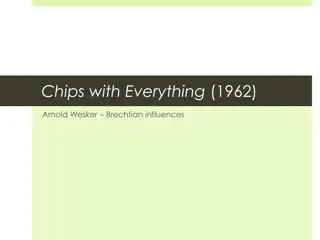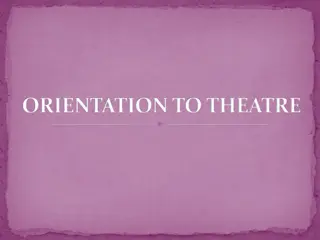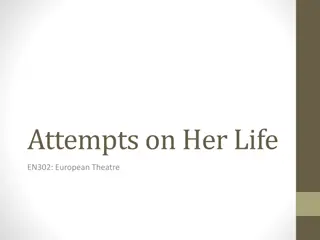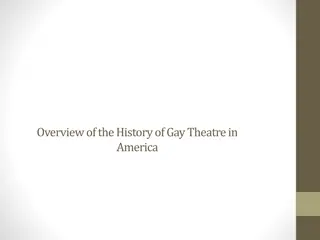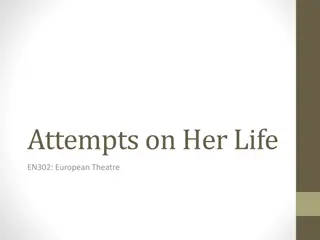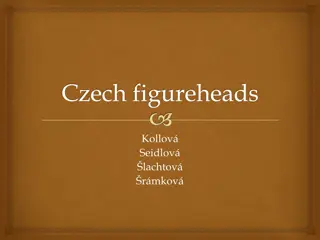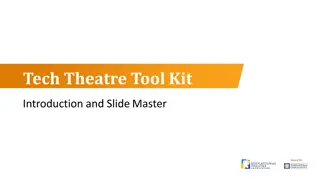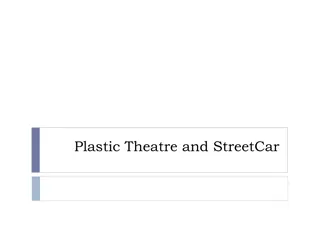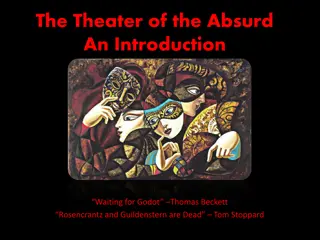Theatre of the Absurd: Origins and Features
Theatre of the Absurd emerged after World War II as a rebellion against traditional beliefs, focusing on the meaningless human existence. This dramatic genre features irrationality, round structure, and a blend of comedy and tragedy. Influenced by Dadaism, Surrealism, and Existentialism, prominent playwrights like Samuel Beckett, Jean Genet, and Eugene Ionesco explored themes of alienation, oppression, and futility of communication through their works.
Download Presentation

Please find below an Image/Link to download the presentation.
The content on the website is provided AS IS for your information and personal use only. It may not be sold, licensed, or shared on other websites without obtaining consent from the author.If you encounter any issues during the download, it is possible that the publisher has removed the file from their server.
You are allowed to download the files provided on this website for personal or commercial use, subject to the condition that they are used lawfully. All files are the property of their respective owners.
The content on the website is provided AS IS for your information and personal use only. It may not be sold, licensed, or shared on other websites without obtaining consent from the author.
E N D
Presentation Transcript
Northern Advantages: More population Industrial advantage Southern Advantages: Fought a defensive war Military leadership
What were they? Missouri, Kentucky, Delaware, and Maryland Why are they important? Even though they had slaves, they remained loyal to, and fought on behalf, of the Union Strategically located, industrialized
Written after the Battle of Antietam: Union victory, bloodiest day, helped to keep Europe out of war Freed slaves in the states in REBELLION (Confederate States of America) Did NOT free slaves in Border States Impact of Emancipation: Strengthened moral cause of war Helped to keep Europe from intervening on behalf of CSA
Contraband: Term for fugitive slaves that sought protection behind Union lines Often fought for Union Conscription: Forced enlistment of citizens (draft) New York City Riots Class tensions between rich and poor (immigrants)
180,000 served in the Union Army 38,000 lost their lives Encouraged to join by Frederick Douglass Paid less than whites
Suspended Habeas Corpus Held people in jail without trial (Only Congress can do this) Increased size of military (Only Congress can do this) Shut down newspapers in D.C. and surrounding areas that were critical (violation of 1stamendment) In times of crisis, personal liberties decrease, power of government increases Habeas Corpus:
National Banking System: Salmon P. Chase (Treasury Secretary and 6thChief Justice), from .. Established Uniform National Currency Homestead Act: Encouraged settlement of land out West Tariffs increased: Republicans controlled Congress; Republicans want to Raise tariffs Morrill Land Grant: Public land was to be donated to states for purpose of training students in agriculture and mechanical arts


